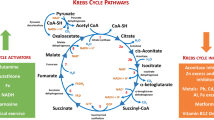Abstract.
The antifungal and immunosuppressive drug rapamycin arrests the cell cycle in G1-phase in both yeast and mammalian cells. In mammalian cells, rapamycin selectively inhibits phosphorylation and activation of p70 S6 kinase (p70S6K), a protein involved in the translation of a subset of mRNAs, without affecting other known kinases. We now report that rapamycin causes chromosome malsegregation in mammalian and yeast cells. Chromosome malsegregation was determined by metaphase chromosome analysis of human lymphocytes and lymphoblasts, detection of CREST-positive micronuclei in human lymphoblasts and Chinese hamster embryonic fibroblast (CHEF) cells, and selection of doubly prototrophic cells in a specially constructed yeast strain. The number of ana-telophases with displaced chromosomes and interphase and mitotic cells with an irregular number of centrosomes was also determined in CHEF cells. In quiescent mammalian cells (human lymphocytes and CHEF cells) induced with growth factor to re-enter the cell cycle, rapamycin was effective when cells were exposed at the time of p70S6K activation. In yeast, rapamycin was more effective when treatment was started in G1- than in G2-synchronized cells. Cells from ataxia telangiectasia (A-T) patients are characterized by chromosome instability and have recently been found to be resistant to the growth-inhibiting effect of rapamycin. We found that an A-T lymphoblastoid cell line was also resistant to the induction of chromosome malsegregation by rapamycin, but the level of spontaneous aneuploidy was higher than in normal cells. In yeast, the induction of chromosome malsegregation was dependent on the presence of a wild-type TUB2 gene, encoding the β-subunit of tubulin. The finding that rapamycin acts in different cell types and organisms suggests that the drug affects a conserved step important for proper segregation of chromosomes. One or more proteins required for chromosome segregation could be under the control of the rapamycin-sensitive pathway.
Similar content being viewed by others
Author information
Authors and Affiliations
Additional information
Received: 3 August 1998 / Accepted: 20 August 1998
Rights and permissions
About this article
Cite this article
Bonatti, S., Simili, M., Galli, A. et al. Inhibition of the M r 70,000 S6 kinase pathway by rapamycin results in chromosome malsegregation in yeast and mammalian cells. Chromosoma 107, 498–506 (1998). https://doi.org/10.1007/s004120050335
Issue Date:
DOI: https://doi.org/10.1007/s004120050335




